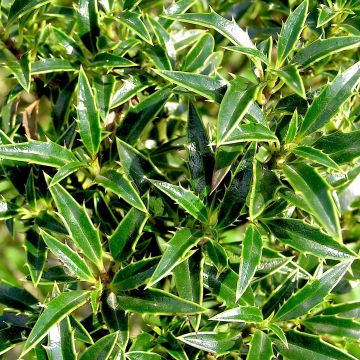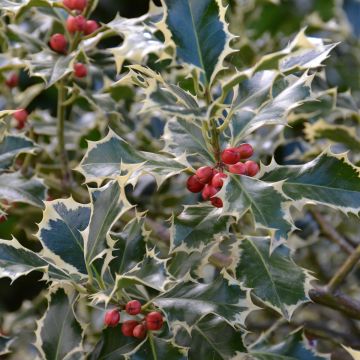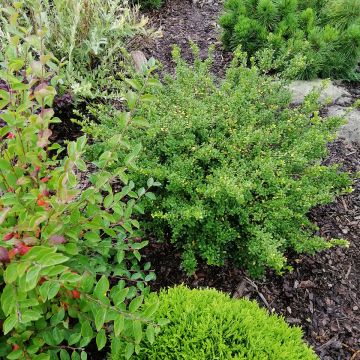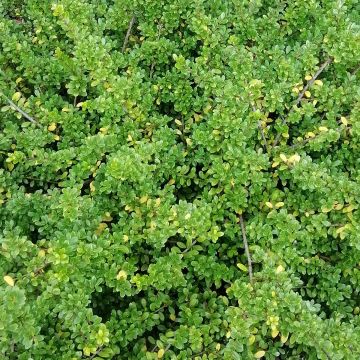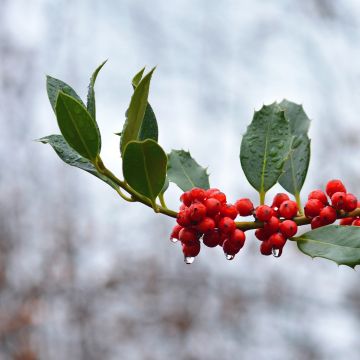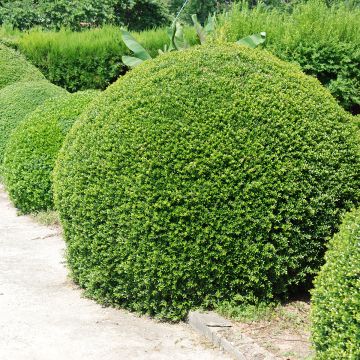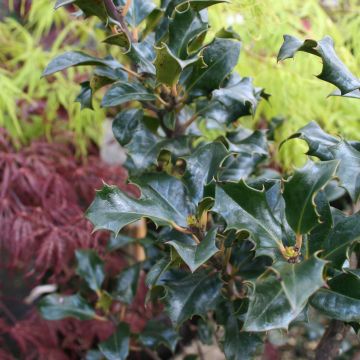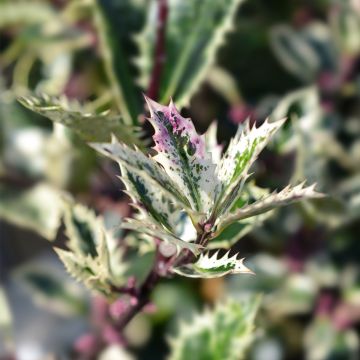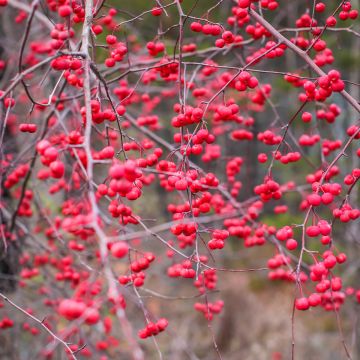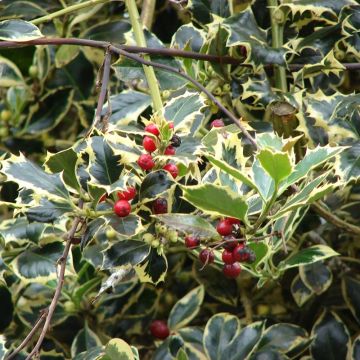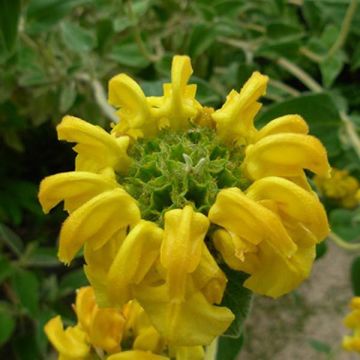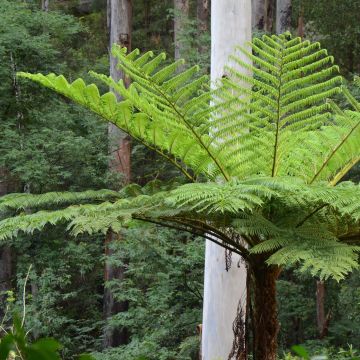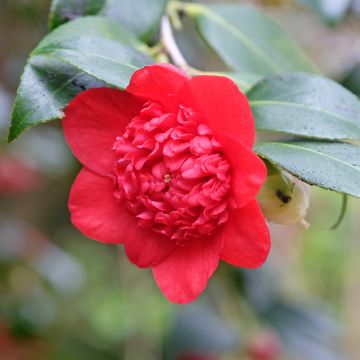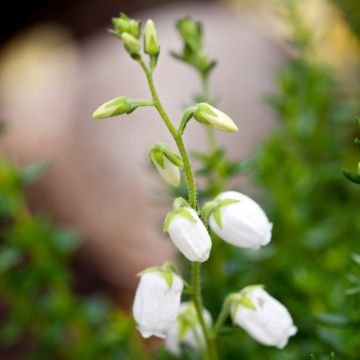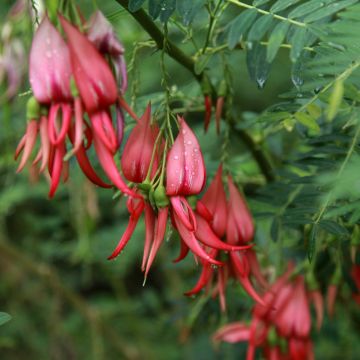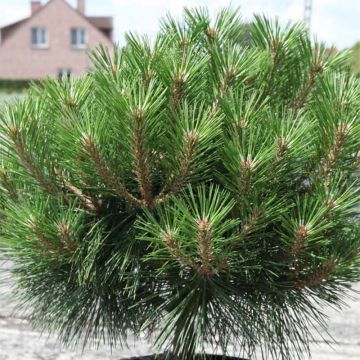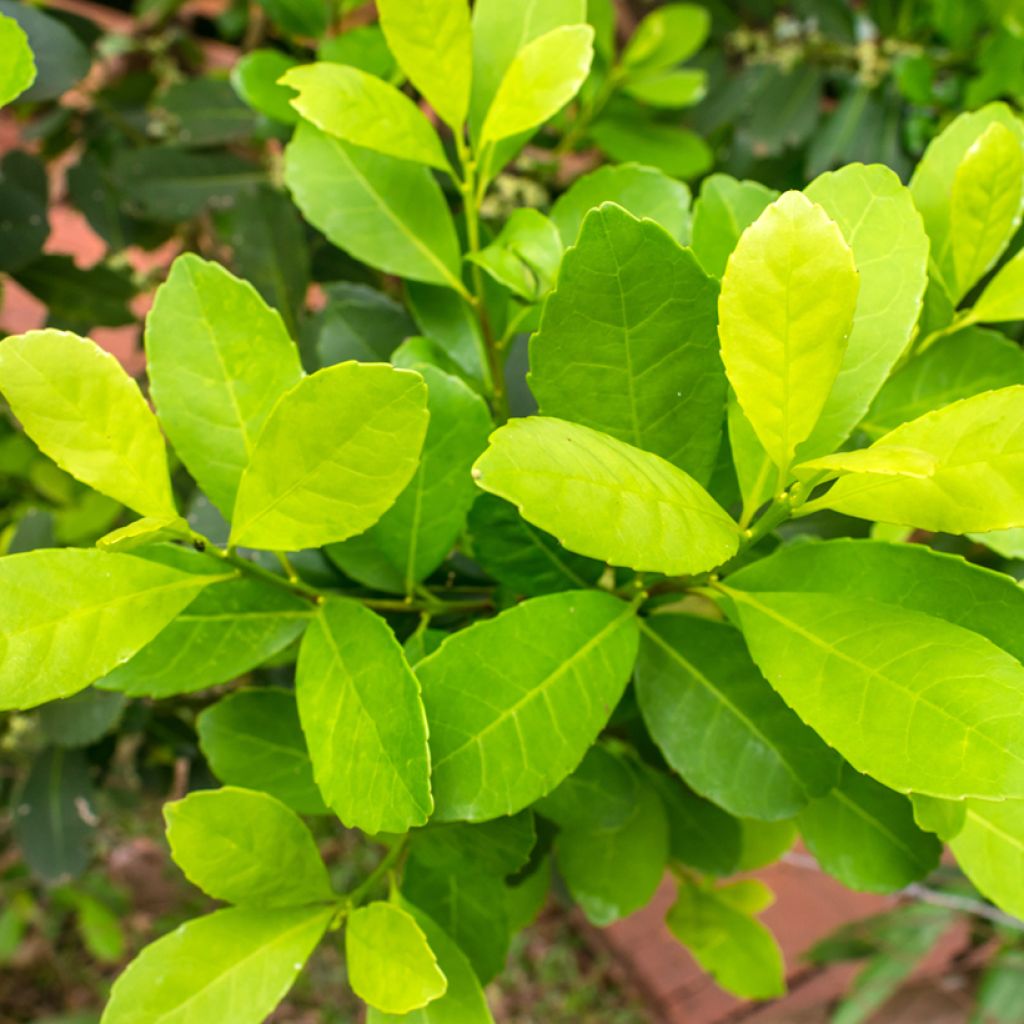

Ilex paraguariensis - Yerba maté, Thé du Paraguay
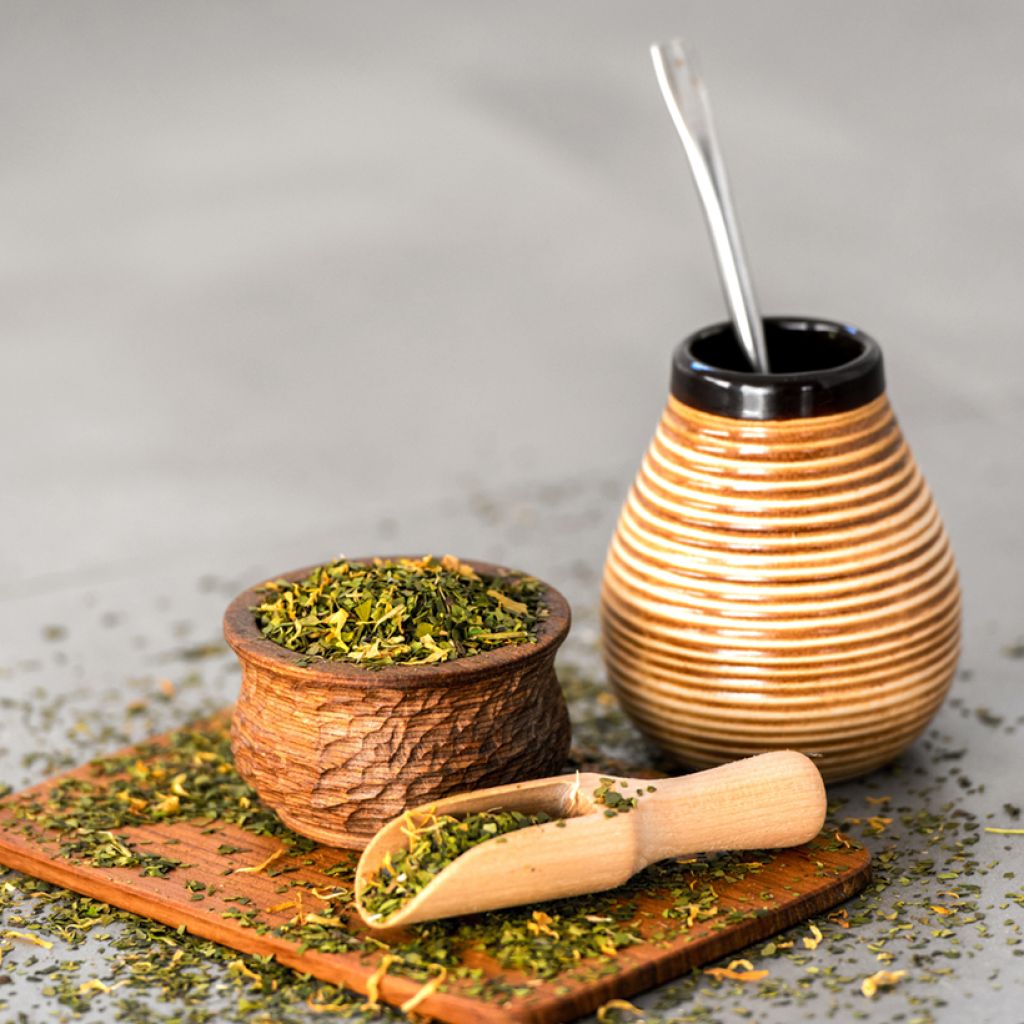

Ilex paraguariensis - Yerba maté, Thé du Paraguay
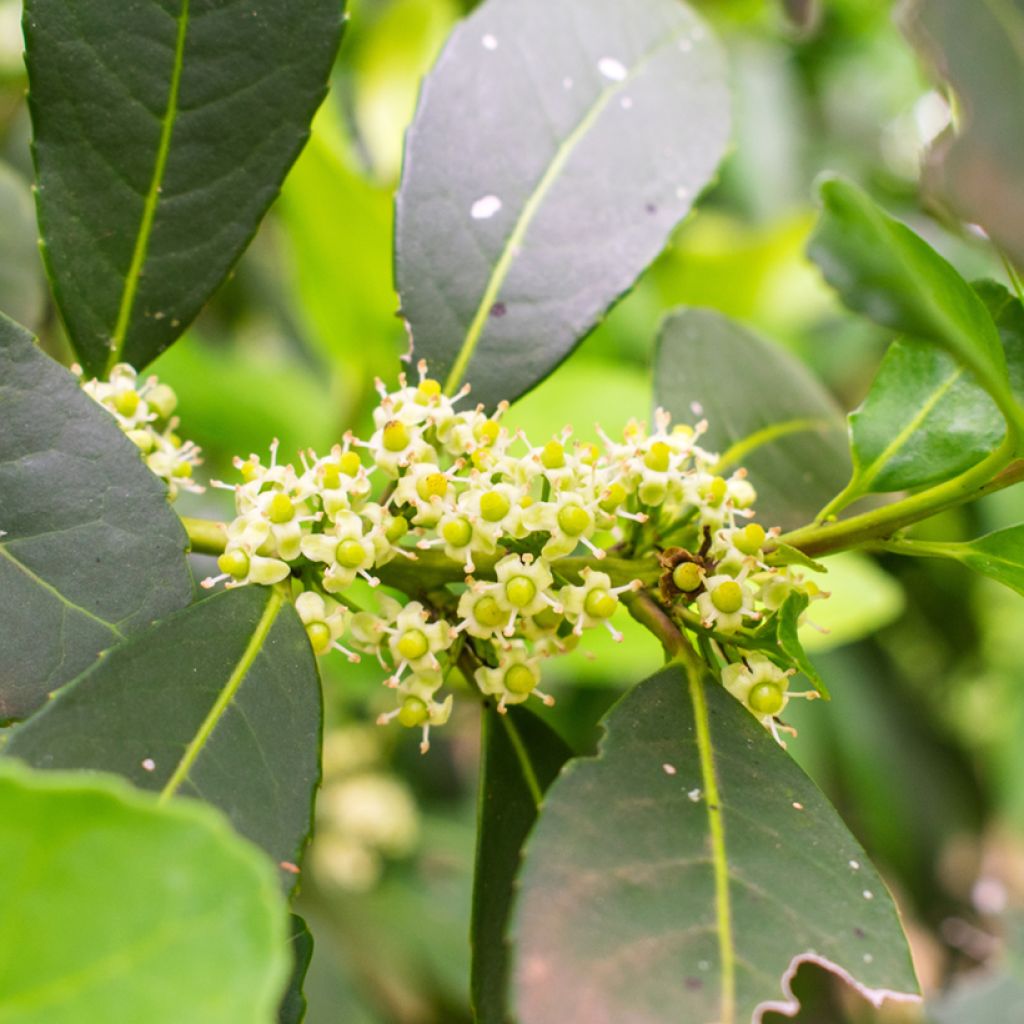

Ilex paraguariensis - Yerba maté, Thé du Paraguay
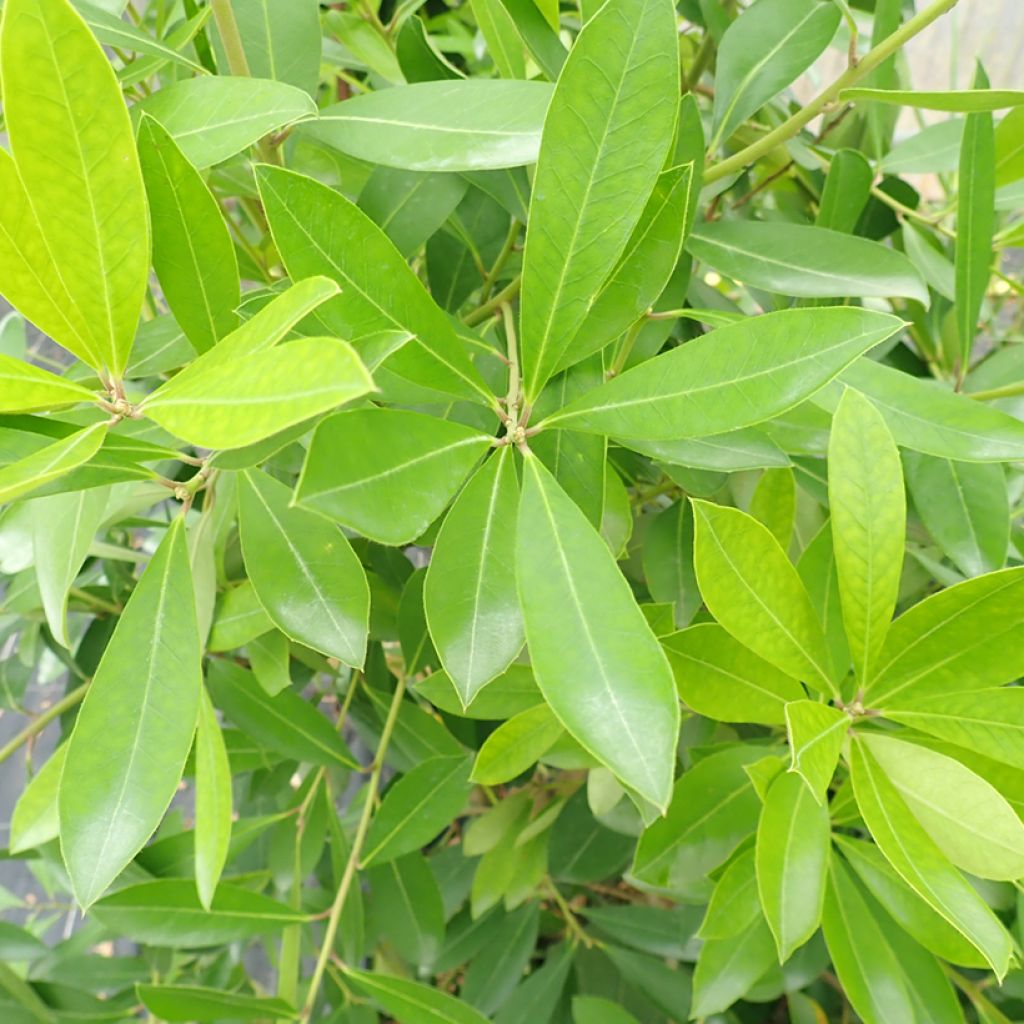

Ilex paraguariensis - Yerba maté, Thé du Paraguay
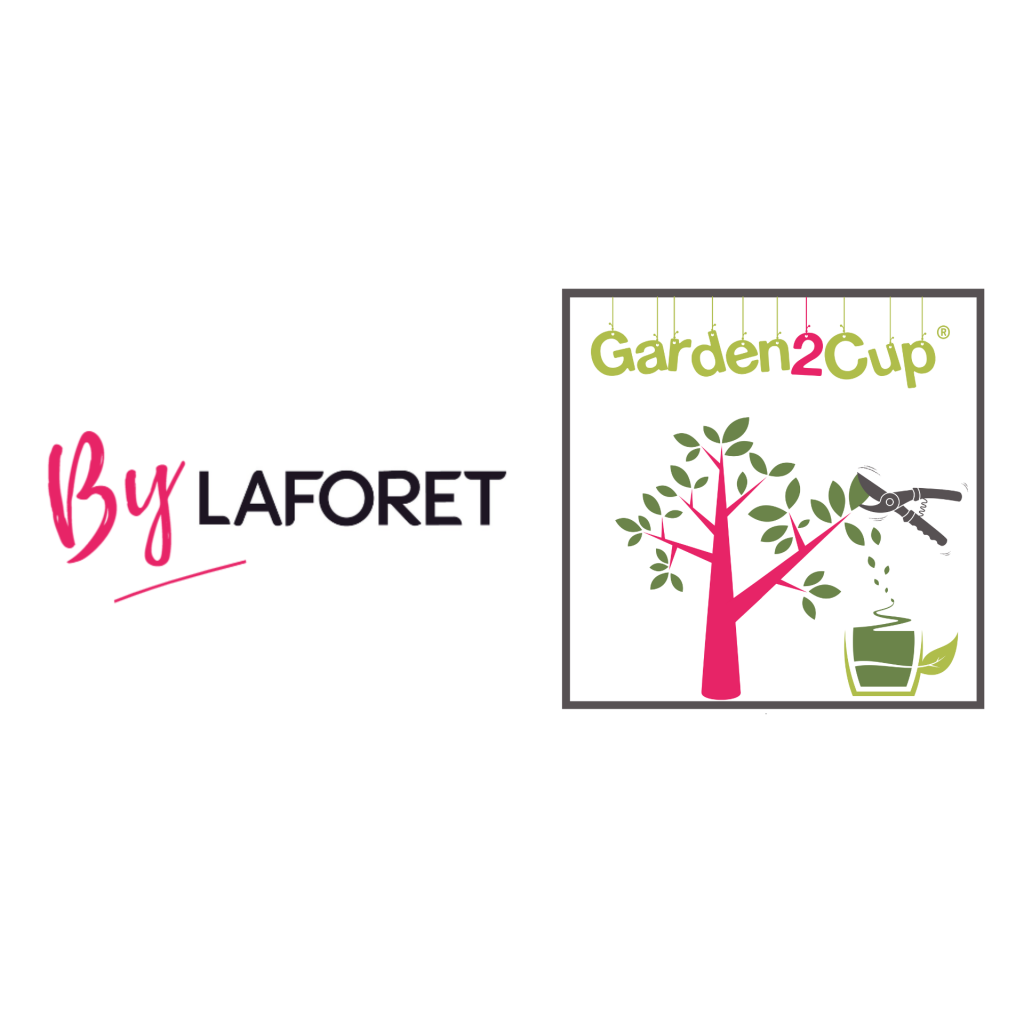

Ilex paraguariensis Garden2cup - Yerba Mate
Ilex paraguariensis Garden2cup - Yerba Mate
Ilex paraguariensis
Brazilian tea, Yerba mate, Paraguay Tea, Jesuit's Tea, South American holly
Received at the end of October, splendid Yerba maté, in a good habit and very well-growing. Potted and sheltered until winter passes, it is responding very well! It's perfect!
Laurrelley, 20/11/2023
Special offer!
Receive a €20 voucher for any order over €90 (excluding delivery costs, credit notes, and plastic-free options)!
1- Add your favorite plants to your cart.
2- Once you have reached €90, confirm your order (you can even choose the delivery date!).
3- As soon as your order is shipped, you will receive an email containing your voucher code, valid for 3 months (90 days).
Your voucher is unique and can only be used once, for any order with a minimum value of €20, excluding delivery costs.
Can be combined with other current offers, non-divisible and non-refundable.
Home or relay delivery (depending on size and destination)
Schedule delivery date,
and select date in basket
This plant carries a 24 months recovery warranty
More information
We guarantee the quality of our plants for a full growing cycle, and will replace at our expense any plant that fails to recover under normal climatic and planting conditions.

Would this plant suit my garden?
Set up your Plantfit profile →
Description
Ilex paraguariensis Garden2cup® is a rare botany holly in culture, known for the tea that is prepared with its dried leaves. This drink is rich in caffeine. It is globally known as maté, Yerba maté, or Paraguay Tea. It's a large bush or a small evergreen tree that is covered with tough, dark green leaves. Its discreet spring flowering is followed by the formation of small purple berries. Leaves are harvested between May and October, on plants at least 4 to 5 years old. The harvest takes place every 3 years on the same young plant.
Ilex paraguariensis belongs to the Aquifoliaceae family, like other holly. It is also called Jesuits' tea or Brazilian tea. In nature, it is found in mountain forests, not far from streams, at low altitude. Although it can reach 20m (66ft) in height in the wild in its native lands, this holly stays much smaller in our climates, especially if it is pruned regularly or grown in a pot. Its habit is rather upright and its growth quite fast. A plant aged 10 years will reach on average 4.5m (15ft) in height and 2.5 to 3m (8 to 10ft) in width. Over time and in open ground, under favourable growing conditions (soil rich in humus, moist but well-drained), it still reaches 8 to 9m (26 to 30ft) in height. Its hardiness does not exceed -8°C (17.6°F). The glossy dark green foliage is evergreen in winter. It is made up of tough, entire leaves, elliptical in shape, traversed by visible veins. Flowering takes place in spring, in May-June. The flowers are quite insignificant. They are whitish, grouped by 4 in the leaf axil. The inedible fruits measure 5 to 7mm (0.2 to 0.3in) in diameter and are purple-red when ripe.
Hollies are both beloved and little-known plants, like this Yerba maté. It will interest amateurs who wish to discover the plant that hides behind this stimulating drink. It should acclimatise quite easily in soil rich in humus and sheltered from direct sunlight. Cultivation in a large volume pot is possible, for a few years, by repotting or dressing the substrate every year. In a garden, it can keep company with the Tea plant and rhododendrons which appreciate the same atmospheres!
The genus comprises nearly 800 deciduous or evergreen species, usually native to the temperate northern hemisphere. These very ancient plants have experienced the alternating glacial and dry, hot periods of our climate history, making them extremely adaptable and resilient plants. Their white to cream wood is very low in water, even when green. It is dense and heavy, but soft and easy to work in cabinet-making. It is also an excellent fuel for heating, even when green. Finally, its foliage and berries (not edible) are rich in caffeine. A tea is made with its leaves in the Black Forest.
Report an error about the product description
Ilex paraguariensis Garden2cup - Yerba Mate in pictures
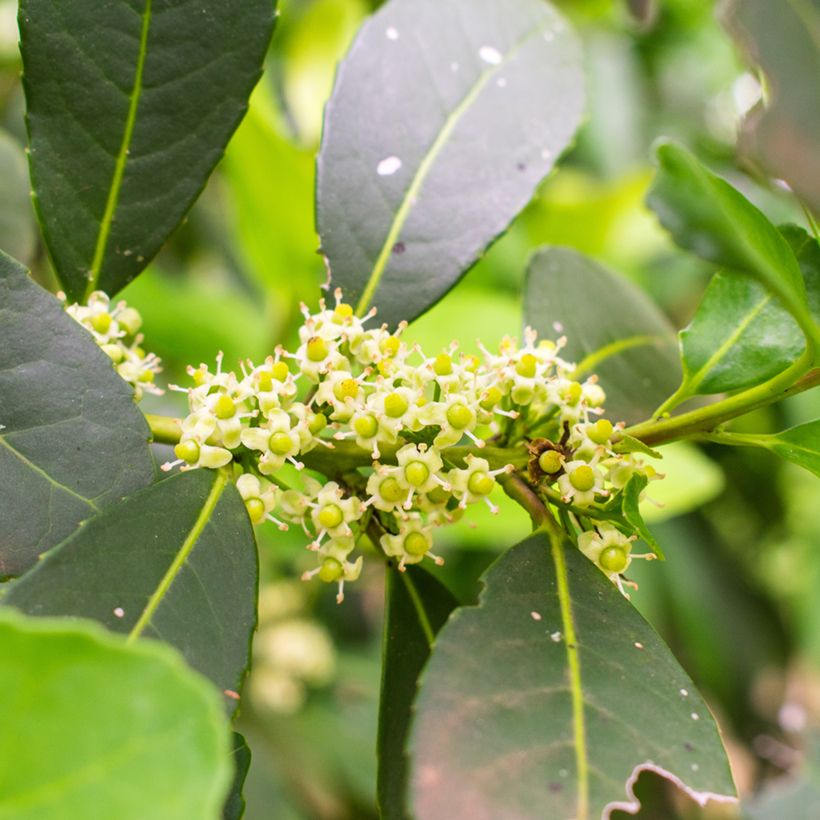

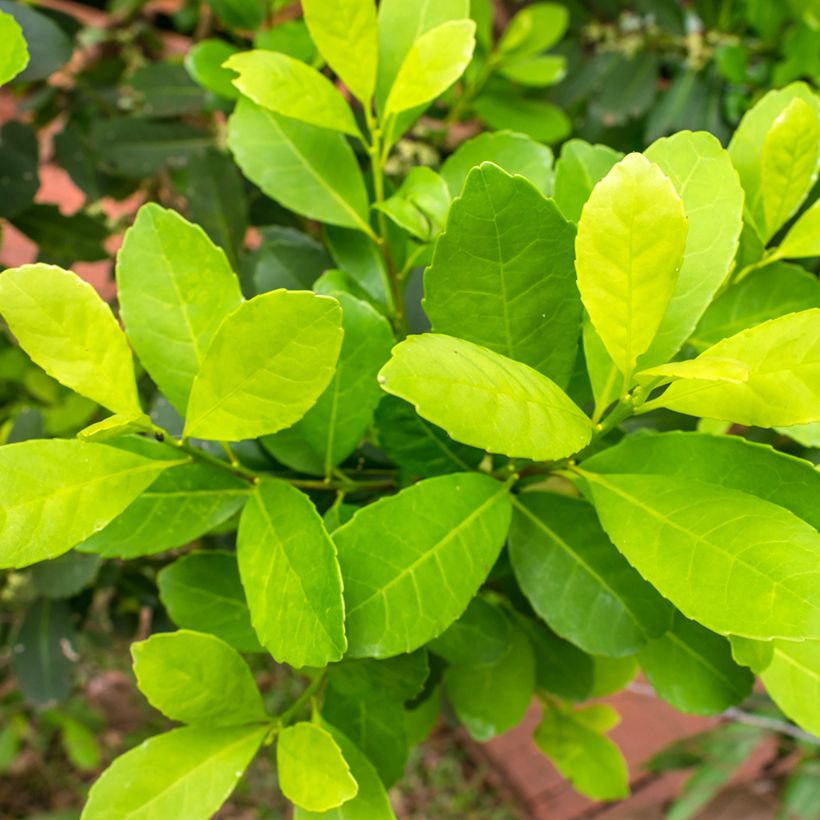

Plant habit
Flowering
Foliage
Botanical data
Ilex
paraguariensis
Aquifoliaceae
Brazilian tea, Yerba mate, Paraguay Tea, Jesuit's Tea, South American holly
South America
Other Ilex - Holly
View all →Planting and care
Add a generous amount of potting soil to compost and incorporate it into your garden soil. This will lightly acidify the soil while fertilising it. If your soil is rich in active limestone, the holly will tend to show chlorosis (the foliage gradually yellows around the veins of the leaf). Choose a semi-shaded or shaded location, as this plant fears direct sunlight especially when young. This holly requires rich, moist but well-drained soil. Water with non-limestone water for the first 3 years to help the bush to settle in. Pay particular attention to watering in summer and during prolonged drought.
It withstands short periods of frost to -8°C (17.6°F).
Pruning is not essential.
If growing in a pot, treat it like a camellia. Choose a large volume pot, pierced at the bottom, with a good bed of drainage. Use a growing substrate rich in leaf compost, which is neutral to slightly acidic. Preferably water with rain water. However, non-limestone water will do.
Planting period
Intended location
Care
-
, onOrder confirmed
Reply from on Promesse de fleurs
Similar products
Haven't found what you were looking for?
Hardiness is the lowest winter temperature a plant can endure without suffering serious damage or even dying. However, hardiness is affected by location (a sheltered area, such as a patio), protection (winter cover) and soil type (hardiness is improved by well-drained soil).

Photo Sharing Terms & Conditions
In order to encourage gardeners to interact and share their experiences, Promesse de fleurs offers various media enabling content to be uploaded onto its Site - in particular via the ‘Photo sharing’ module.
The User agrees to refrain from:
- Posting any content that is illegal, prejudicial, insulting, racist, inciteful to hatred, revisionist, contrary to public decency, that infringes on privacy or on the privacy rights of third parties, in particular the publicity rights of persons and goods, intellectual property rights, or the right to privacy.
- Submitting content on behalf of a third party;
- Impersonate the identity of a third party and/or publish any personal information about a third party;
In general, the User undertakes to refrain from any unethical behaviour.
All Content (in particular text, comments, files, images, photos, videos, creative works, etc.), which may be subject to property or intellectual property rights, image or other private rights, shall remain the property of the User, subject to the limited rights granted by the terms of the licence granted by Promesse de fleurs as stated below. Users are at liberty to publish or not to publish such Content on the Site, notably via the ‘Photo Sharing’ facility, and accept that this Content shall be made public and freely accessible, notably on the Internet.
Users further acknowledge, undertake to have ,and guarantee that they hold all necessary rights and permissions to publish such material on the Site, in particular with regard to the legislation in force pertaining to any privacy, property, intellectual property, image, or contractual rights, or rights of any other nature. By publishing such Content on the Site, Users acknowledge accepting full liability as publishers of the Content within the meaning of the law, and grant Promesse de fleurs, free of charge, an inclusive, worldwide licence for the said Content for the entire duration of its publication, including all reproduction, representation, up/downloading, displaying, performing, transmission, and storage rights.
Users also grant permission for their name to be linked to the Content and accept that this link may not always be made available.
By engaging in posting material, Users consent to their Content becoming automatically accessible on the Internet, in particular on other sites and/or blogs and/or web pages of the Promesse de fleurs site, including in particular social pages and the Promesse de fleurs catalogue.
Users may secure the removal of entrusted content free of charge by issuing a simple request via our contact form.
The flowering period indicated on our website applies to countries and regions located in USDA zone 8 (France, the United Kingdom, Ireland, the Netherlands, etc.)
It will vary according to where you live:
- In zones 9 to 10 (Italy, Spain, Greece, etc.), flowering will occur about 2 to 4 weeks earlier.
- In zones 6 to 7 (Germany, Poland, Slovenia, and lower mountainous regions), flowering will be delayed by 2 to 3 weeks.
- In zone 5 (Central Europe, Scandinavia), blooming will be delayed by 3 to 5 weeks.
In temperate climates, pruning of spring-flowering shrubs (forsythia, spireas, etc.) should be done just after flowering.
Pruning of summer-flowering shrubs (Indian Lilac, Perovskia, etc.) can be done in winter or spring.
In cold regions as well as with frost-sensitive plants, avoid pruning too early when severe frosts may still occur.
The planting period indicated on our website applies to countries and regions located in USDA zone 8 (France, United Kingdom, Ireland, Netherlands).
It will vary according to where you live:
- In Mediterranean zones (Marseille, Madrid, Milan, etc.), autumn and winter are the best planting periods.
- In continental zones (Strasbourg, Munich, Vienna, etc.), delay planting by 2 to 3 weeks in spring and bring it forward by 2 to 4 weeks in autumn.
- In mountainous regions (the Alps, Pyrenees, Carpathians, etc.), it is best to plant in late spring (May-June) or late summer (August-September).
The harvesting period indicated on our website applies to countries and regions in USDA zone 8 (France, England, Ireland, the Netherlands).
In colder areas (Scandinavia, Poland, Austria...) fruit and vegetable harvests are likely to be delayed by 3-4 weeks.
In warmer areas (Italy, Spain, Greece, etc.), harvesting will probably take place earlier, depending on weather conditions.
The sowing periods indicated on our website apply to countries and regions within USDA Zone 8 (France, UK, Ireland, Netherlands).
In colder areas (Scandinavia, Poland, Austria...), delay any outdoor sowing by 3-4 weeks, or sow under glass.
In warmer climes (Italy, Spain, Greece, etc.), bring outdoor sowing forward by a few weeks.






























